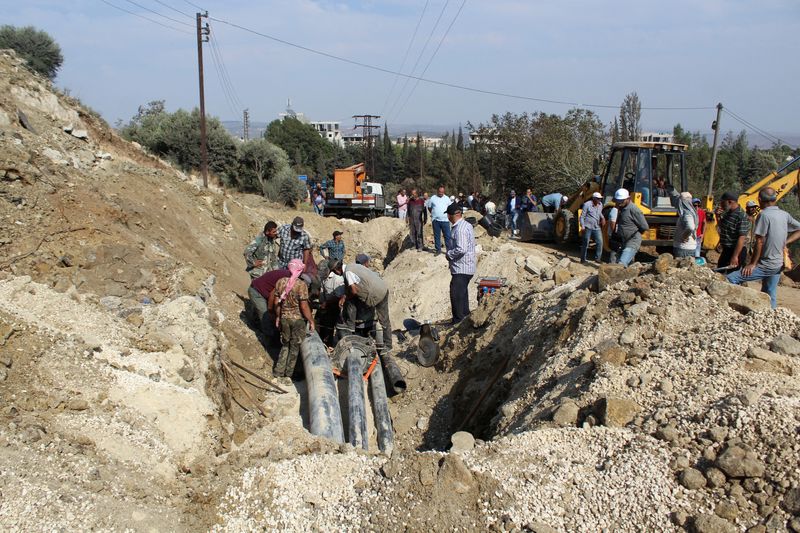JERUSALEM (Reuters) -Israel's military said on Thursday its special forces had raided an underground missile production site in Syria in September that it said was primed to produce hundreds of precision missiles for use against Israel by the Iranian-backed Hezbollah.
The complex near Masyaf, close to the Mediterranean coast, was "the flagship of Iranian manufacturing efforts in our region", Lieutenant Colonel Nadav Shoshani told a briefing with reporters.
"This facility was designed to manufacture hundreds of strategic missiles per year from start to finish, for Hezbollah to use in their aerial attacks on Israel."
He said the plant, dug into a mountainside, had been under observation by Israel since construction began in 2017 and was on the point of being able to manufacture precision-guided missiles, some with a range of up to 300 km (190 miles).
"This ability was becoming active, so we're talking about an immediate threat," he said.
Details of the Sept. 8 raid have been reported in Israeli media but Shoshani said this was the first confirmation by the military, which rarely comments on special forces operations and it was hailed by Prime Minister Benjamin Netanyahu.
"This was one of the most important preventative operations that we have taken against the efforts of the Iranian axis to arm itself in order to attack us," he said in a statement.
COMPLEX OPERATION
Shoshani said the nighttime raid was "one of the more complex operations the IDF has done in recent years". Accompanied by airstrikes, it involved dozens of aircraft and around 100 helicopter-borne troops, he said.
"At the end of the raid, the troops dismantled the facility, including the machines and the manufacturing equipment, themselves," he said.
The military released footage showing Israeli troops boarding and dismounting from helicopters and moving through what appears to be a concrete-lined tunnel and industrial site, where they examine documents.
Other footage showed senior commanders at a control centre, apparently as the operation proceeds.
At the time, Syrian state media said at least 16 people were killed in Israeli airstrikes in the west of the country.

Israeli officials have accused the former Syrian government of Bashar al-Assad of helping the Lebanese-based Hezbollah movement receive arms from Iran and say they are determined to stop the flow of weapons into Lebanon.
As Assad's government crumbled towards the end of last year, Israel launched a series of strikes against Syrian military infrastructure and weapons manufacturing sites to prevent them falling into the hands of enemies.